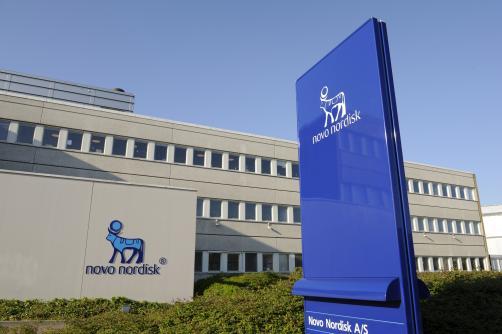
Manufacturing issues hold up Novo’s Factor XIII in US
pharmafile | August 12, 2013 | News story | Manufacturing and Production | Factor XIII, Novo Nordisk, haemophilia
Novo Nordisk’s recombinant Factor XIII treatment for haemophilia has been held up at the FDA in another blow to its late-stage pipeline.
Novo’s chief science officer Mads Krogsgaard Thomsen told investors last week that the company has been denied approval for catridecacog (NN1841) in a complete response letter from the FDA which cites: “outstanding issues surrounding the inspection of the manufacturing facilities”.
This is now the second time that the approval of the Factor XIII product has been delayed. In February 2012, Novo received a complete response letter which also asked for more data on the filing, forcing the company to withdraw and resubmit its application late the same year.
The company said in its second-quarter results statement that it is “working closely with FDA to address the issues”.
Catridecacog is a once-monthly replacement therapy for patients with congenital Factor XIII A-subunit deficiency, a condition which affects only around one in 1 to 3 million births, with around 900 patients worldwide.
The drug has already been launched in Europe and Canada under the NovoThirteen and Tretten trade names, respectively, and has also been approved for marketing in Switzerland.
Given the vanishingly small patient population sales are expected to be modest, but analysts at Jyske Bank have predicted they could reach around $90 million a year, as long as Novo can secure US approval.
FDA woes for Novo
The latest rejection is further bad news for Novo after the FDA knocked back two diabetes treatments – Tresiba (insulin degludec) and Ryzodeg (insulin degludec/insulin aspart) – saying it wanted more trial data but also citing problems relating to an inspection of an aseptic filling facility in Denmark.
While the specific issues relating to the catridecacog rejection have not been disclosed, Novo was sent a warning letter by the FDA in December 2012 relating to its facility in Bagsvaerd, Denmark, citing deficiencies in measures designed to prevent microbiological contamination of sterile medicines.
Novo’s flagship haemophilia product is NovoSeven (eptacog alfa), which brought in sales of 4.57 billion krone ($817 million) in the first half of this year, is starting to experience a sales slowdown as it loses patent protection in some markets.
Catridecacog is one of a handful of new haemophilia drugs the company is developing to reinforce its franchise in the face of looming competition from Biogen Idec.
Heading Novo’s pipeline at the moment are turoctocog alfa (NN7008) for haemophilia A, a long-acting recombinant coagulation factor VIII derivative which was filed for approval in the US last October, and N9-GP (NN7999), a long-acting recombinant coagulation factor IX derivative for haemophilia B which is in phase III trials.
Last year however Novo suffered a late-stage pipeline setback in haemophilia after it was forced to drop a long-acting Factor VIIa therapy called vatreptacog alfa after patients in trials developed inhibitory antibodies to the drug.
Phil Taylor
Related Content

FDA approves Wegovy for treatment of MASH in adults with liver fibrosis
The US Food and Drug Administration (FDA) has granted accelerated approval for Wegovy (semaglutide) as …

BioMed X and Novo Nordisk partner on oral peptide drug delivery innovation
BioMed X has announced a new collaboration with Novo Nordisk to improve oral delivery of …

Pila Pharma raises SEK 20m to advance new oral obesity treatment
Swedish biotech, Pila Pharma, has raised nearly SEK 20m, equivalent to €1.7m in a capital …






